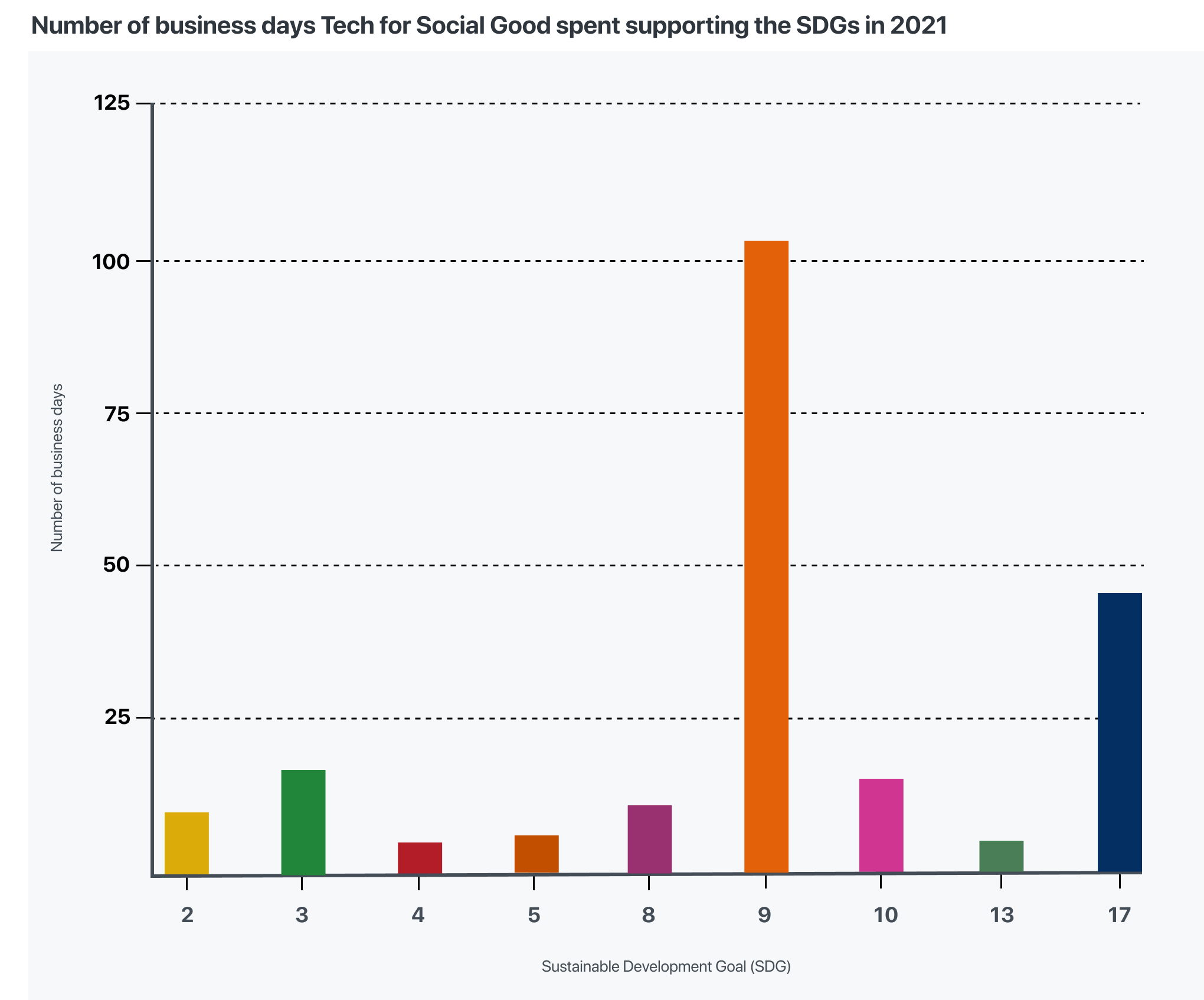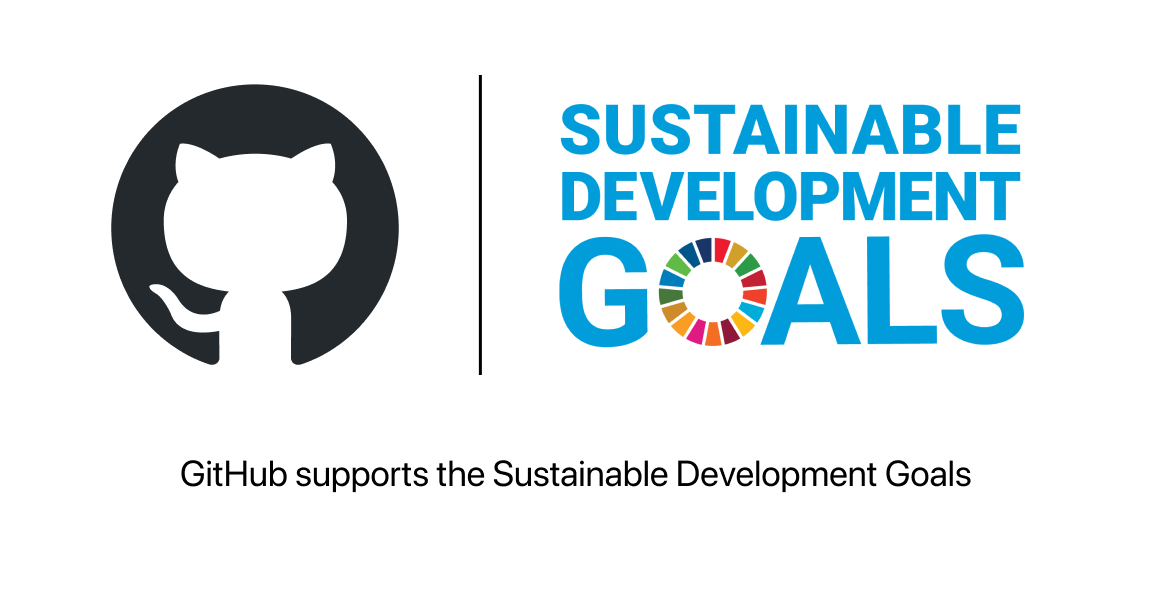The Sustainable Development Goals (SDGs)
The Sustainable Development Goals (SDGs) is a powerful framework created by the United Nations (UN), the broader international development community, governments, and funders to measure human progress. Tech for Social Good at GitHub primarily exists to support social sector organizations that design, build, and deploy technology tools and software that contribute to the SDGs. Our work therefore also aligns with the SDGs, whether it’s through collaborating with the World Health Organization, connecting our own employees to Skills-Based Volunteering projects, conducting data and open source research for the social sector, or helping social sector organizations use GitHub.
Below, you’ll find our 2021 time map that shows how we spent our working days in terms of the 17 SDGs and 169 targets. This covers everything from public health to education, gender equality, the environment, and more. Click here to see our 2020 recap.

Here’s a look at how Tech for Social Good supported two key SDGs.
In 2021, as was the case in 2020, every Tech for Social Good program touched on SDG 9, which focuses on technology infrastructure, research, innovation, and support for low- and middle-income countries. Our Skills-Based Volunteering program launched and/or completed projects with DHIS2, the UN World Food Programme, the UN OICT, and the Digital Public Goods Alliance (DPGA) that supported SDG 9. Project tasks included consultations on a simulation platform for analyzing the effects of negative shocks to a country. The platform was based on a pilot done in Chad, Niger, and Mali. Other tasks included migrating code to GitHub, building out developer documentation for health management components, and creating a GitHub training.
Skills-Based Volunteering also open sourced a version of its repository to allow other organizations and companies to replicate the program.
SDG 17: Strengthen the means of implementation and revitalize the global partnership for sustainable development
In 2020, our work with the World Health Organization primarily focused on supporting WHO’s COVID response, which fell under SDG 3, Good Health and Well-Being. In 2021, we pivoted to supporting a new global technology coordination mechanism, a WHO Open Source Programme Office (OSPO). While this work still indirectly supports SDG 3, an OSPO’s primary function is to bring open source collaboration within WHO and with public health ecosystems to the next level. These coordination mechanisms fall under SDG 17 and particularly indicator 17.6:
“Enhance North-South, South-South and triangular regional and international cooperation on and access to science, technology and innovation and enhance knowledge-sharing on mutually agreed terms, including through improved coordination among existing mechanisms, in particular at the United Nations level, and through a global technology facilitation mechanism.”
In the coming months, we’ll publish more detailed information on our WHO OSPO work.
What’s Ahead?
We’re excited to launch the final reports of two ongoing research projects that pertain to SDG 9. The first project is our OSS in the Social Sector in the LMICs project, which we launched in June 2021. The second project is in response to our Standardized GitHub Metrics RFP. For a complete programmatic recap of 2021, check out this blog post and subscribe to our RSS feed to stay updated on future announcements!





